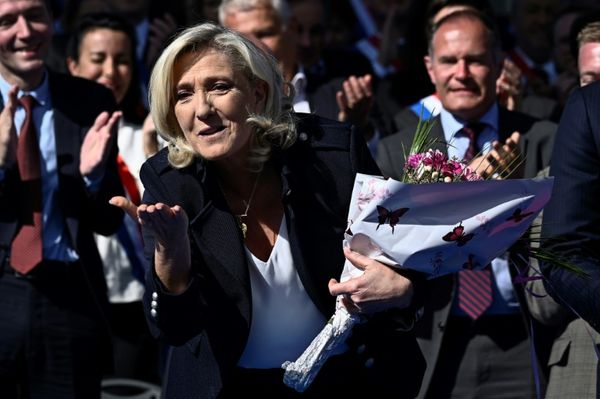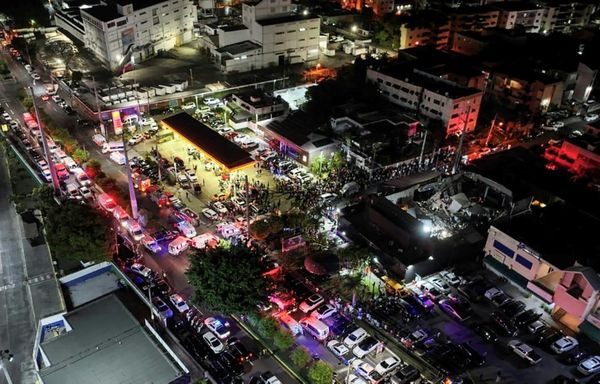Subtlety, self-control and efficiency are three qualities not regularly associated with Nick Kyrgios, but they came to the fore in his Australian Open first-round victory over British qualifier Liam Broady on Tuesday night.
The memorable moments were what Kyrgios's fans have come to expect: risky tweeners followed by majestic, curling forehand winners down the line; inside-out winners from impossible angles; and in the opening minutes of the match, a lairy tweener serve followed by a 220kph thunderbolt that almost flattened Broady.
In quieter, tougher moments, Kyrgios belied his lack of match practice and played with guile.
The first and second sets started on Broady's racquet and Kyrgios applied stifling pressure, breaking on both occasions to tilt the momentum beyond Broady's control.
In the third set, the crunch moment came in Broady's second service game and again Kyrgios held his nerve.
Throughout, both players knew it was a long shot that Broady could ever break back — Kyrgios underlined that with six aces in his first nine serves of the night, and they kept coming.
Of course, you could say that the result — a 6-4, 6-4, 6-3 victory for Kyrgios — was a simple case of elite talent prevailing over journeyman grit. Broady's current ranking of 127 is a career-best and all else about him was cherubic and unthreatening.
But Kyrgios has lost before against less-credentialed opponents and he arrived in Melbourne this week on the back of an asthmatic episode with a COVID-19 chaser.
He is now a master of setting expectations absurdly low and slightly over-delivering, but his excuses this time are entirely valid.
One more good thing before the bad: the match was played in a tremendous spirit, full of laughter and good cheer from both players, which is no small thing for Britons facing Australians in a home Ashes summer.
The bad, for Kyrgios, is that his reward is to face Daniil Medvedev in the second round.
The awkwardness is not just that the Russian is the tournament favourite, but that, unlike Kyrgios, he has in his mid-20s overcome a narrative of self-destruction and fulfilled his potential as a grand slam champion.
It is true that Kyrgios has beaten Medvedev twice in the past, although Medvedev was not quite the version of himself who won last year's US Open and reached the final at Melbourne Park.
If Kyrgios beats him this time, it'll be a victory for the ages.
Where is Kyrgios at right now?
We have entered a particularly strange and not entirely pleasant section of the Nick Kyrgios timeline in recent months.
A year ago, Kyrgios arrived at Melbourne Park as a kind of people's hero, only reluctantly agreeing that Australian tennis honchos had done the right thing in ensuring the tournament's staging by using the hypothetical threat of its loss to the city if the show didn't go on.
Kyrgios bowed out in the fourth round that time, but he won plenty of new admirers, being almost quixotic in his denunciation of some of his peers. He delivered rations to pandemic-hit Canberrans and reminded his millennial fans that it was OK to feel a bit lost.
In that light, his about-face of the last fortnight is plain weird. Kyrgios buried his longstanding grudge with Novak Djokovic, ostensibly because he recognised the familiar sights and sounds of a media circus.
But in doing so, he's effectively sided with the highest-profile vaccine sceptic in world sport.
On the tennis side, the messages have been equally mixed. A week ago, Kyrgios tweeted a link promoting his endorsement of an online tennis training platform. The bare fact alone would have raised eyebrows, but the accompanying words were never going to prompt anything other than outright mockery.
"In this world, you can be anything you want," wrote Kyrgios. "This is a day-by day grind. You want to play like me? Let me help you take your game to the next level."
Fans returned serve. "Bloke who admits to hating and doing minimal training launches training platform — interesting," replied one. "Surely this is a joke?" asked another. You can pretty much guess the rest.
When Kyrgios says he gets panned no matter what he does, he's not wrong. But he needn't make it so easy for his critics.
The hypocritical disconnect between the brand and the man could be seen in his comments before this tournament, when he spoke of putting on "a good show" — definitely not of "grinding", let alone winning.
"I mean, honestly, if I'm ranked 1000 or 10 in the world, I know what I'm capable of," Kyrgios said.
"Everyone knows what I'm capable of on tour. I'm not a player who hasn't proven himself. I'm a player who I feel like, I talk a lot, but I also have beaten a lot of players and have won a lot of tournaments."
Which is also true. But talk is cheap and it won't count for much on Thursday night.







